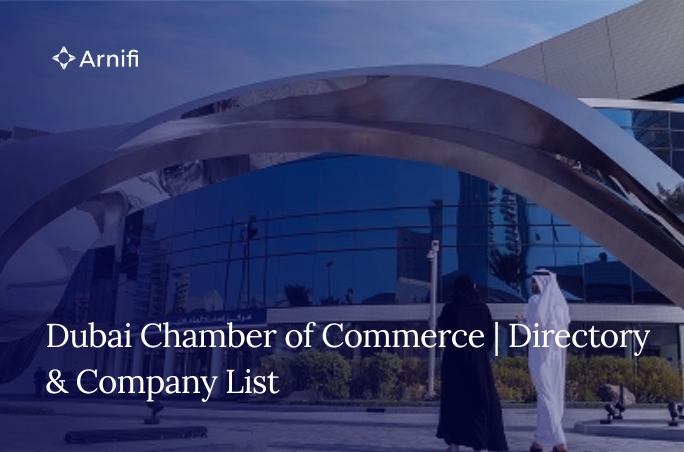Easy Investment Tips for Beginners in Dubai
by Shethana Mar 21, 2024  14 MIN READ
14 MIN READ

Dubai, known for its extravagant lifestyle and luxury, has also emerged as a hub for investment opportunities. As one of the seven emirates of the United Arab Emirates (UAE), Dubai has attracted numerous international companies and investors seeking lucrative business prospects. With iconic landmarks like the Burj Khalifa, the tallest building in the world, and its strategic location on the Persian Gulf, Dubai has become a magnet for entrepreneurs and investors.
For beginners looking to venture into the world of investments, Dubai offers a wealth of opportunities across various sectors. Whether it’s real estate, health insurance, or starting a profitable business, Dubai provides a favorable environment to grow your wealth. However, navigating the investment landscape in Dubai can be daunting for beginners who are unfamiliar with the legal procedures and market dynamics.
Does not matter, if you are looking to establish a small-scale enterprise or venture into the world of stock markets, if you want to enhance your financial portfolios, Dubai is just the place for you. At Arnifi, we provide complete and transparent guidance to anybody looking to start their business in Dubai while ensuring maximized returns despite having a limited budget.
Understanding the Investment Landscape in Dubai
Before diving into the investment opportunities in Dubai, it’s essential to understand the investment landscape in the United Arab Emirates (UAE) and the government of Dubai’s role in facilitating a business-friendly environment. The UAE, of which Dubai is a part, is known for its pro-business policies and investor-friendly regulations. The government of Dubai has implemented initiatives to attract foreign investment and foster economic growth.
Dubai has become a global business and financial hub, attracting numerous international companies across various industries. The city’s strategic location, excellent infrastructure, and ease of doing business have played a significant role in attracting these companies. Furthermore, Dubai’s tax-free environment and access to a diverse pool of talent make it an attractive destination for both established businesses and startups.
The government of Dubai has introduced several measures to stimulate investment and create a conducive environment for entrepreneurs. These measures include:
- streamlining the business setup process
- providing incentives for specific sectors
- and implementing investor-friendly policies.
The Dubai Department of Economic Development (DED) is responsible for regulating and promoting economic activity in the emirate. As a beginner investor in Dubai, it’s crucial to familiarize yourself with the legal procedures and requirements for setting up a business or making investments. Understanding the investment landscape will help you make informed decisions and navigate the market effectively. Dubai’s investment-friendly policies and robust infrastructure make it an ideal destination for beginners looking to venture into the world of investments.
Legal Framework Governing Investments in Dubai
Investment in the UAE operates under the umbrella of Federal Law No. 8 of 1984, known as the Companies Law, and Federal Law No. 19 of 2018, which focuses on Foreign Direct Investment (FDI). These laws serve as the cornerstone for business operations, corporate structures, and foreign investment within the country.
Foreign Direct Investment (FDI) Law:
Introduced in 2018, the FDI Law is pivotal in the UAE’s initiative to attract foreign investment. It permits up to 100% foreign ownership in designated sectors, reducing reliance on local sponsors. The law also streamlines company establishment procedures and delineates a positive list of sectors open to full foreign ownership.
Free Zones:
The UAE hosts numerous free zones, offering added incentives for investors. These zones aim to entice foreign enterprises through tax exemptions, full foreign ownership, and simplified import-export processes. Each free zone operates under distinct regulations, allowing investors to select the most suitable option for their business requirements.
Regulatory Authorities:
Various regulatory bodies oversee investment activities in the UAE. The Securities and Commodities Authority (SCA) supervises securities and commodities markets, ensuring fairness and transparency. The Central Bank of the UAE regulates banking and financial services, while the Ministry of Economy formulates economic policies and upholds international standards.
Investor Protections:
Investor rights are safeguarded through transparent dispute resolution mechanisms. Specialized commercial courts handle business disputes, and the UAE has signed bilateral investment treaties (BITs) and double taxation avoidance agreements (DTAs) to provide further protection and incentives.
Taxation Laws:
While federal income tax is absent in the UAE, emirate-level taxes and fees may apply. Understanding tax implications, including Value Added Tax (VAT) introduced in 2018, is crucial for businesses.
Securities and Commodities Laws:
Compliance with regulations set by the UAE Securities and Commodities Authority (SCA) is necessary for investments involving securities or commodities trading.
Compliance and Reporting:
Companies in the UAE must maintain accurate financial records and submit regular reports to regulatory bodies. Adherence to international corporate governance standards enhances transparency and accountability.
Key Sectors for Investment
Dubai offers a diverse range of sectors for investment, each with its unique opportunities and potential for growth. As a beginner investor, it’s essential to explore these sectors and understand their dynamics to make informed investment decisions. Here are some key sectors for investment in Dubai:
- Real Estate: Dubai’s real estate market has been a major attraction for investors. The city’s booming construction sector, coupled with the influx of tourists and expatriates, has created a strong demand for residential and commercial properties. Investing in real estate can provide a stable source of income through rental yields and potential capital appreciation.
- Health Insurance: With a growing population and an increased focus on healthcare, the health insurance sector in Dubai offers promising investment opportunities. The government of Dubai has made health insurance mandatory for residents, creating a steady demand for insurance products and services.
- Profitable Business: Dubai’s thriving business ecosystem provides ample opportunities for entrepreneurs to start profitable businesses. From hospitality and tourism to technology and retail, there are various sectors where small businesses can flourish in Dubai. Identifying a niche market or a particular field can lead to success in the competitive business landscape.
These sectors offer attractive prospects for beginners looking to invest in Dubai. However, it’s important to conduct thorough market research and feasibility studies to assess the viability of potential investments. Additionally, seeking professional advice at www.arnifi.com and support can help navigate the intricacies of each sector and maximize returns on investment.
What You Need to Get Started
To get started with your investment journey in Dubai, there are a few key essentials you need:
- Business Plan: If you’re planning to start a business in Dubai, a well-structured business plan is essential. A business plan outlines your objectives, target market, financial projections, and marketing strategies. It serves as a roadmap for your business and helps attract potential investors.
- Small Business Ideas: Consider various small business ideas that are suitable for the Dubai market. The city offers opportunities in sectors such as hospitality, retail, technology, and service-based industries. Research the market and identify gaps or niches where your business can thrive.
By having a solid business plan and identifying a suitable small business idea, you can lay a strong foundation for your investment journey in Dubai.
Step 1: Market Research and Feasibility Study
Market research and feasibility studies are crucial steps in the investment process. These steps help you assess the market demand, competition, and potential profitability of your investment. Here’s a breakdown of Step 1:
Market Research: Conduct thorough market research to understand the demand for your product or service in the Dubai market. Analyze customer preferences, market trends, and competition. This will help you identify opportunities and potential challenges for your investment.
Feasibility Study: Perform a feasibility study to assess the viability of your investment. This study involves analyzing financial projections, costs, potential risks, and return on investment. A feasibility study helps you make an informed decision about the profitability and sustainability of your investment.
| Column Name A | Column Name B |
| Market Research | Analyze customer preferences, market trends, and competition. |
| Feasibility Study | Assess financial projections, costs, risks, and ROI. |
By conducting market research and a feasibility study, you can gather valuable insights that will guide your investment decisions and increase the chances of success in the Dubai market.
Step 2: Choosing the Right Investment Sector
Choosing the right investment sector is crucial for maximizing your returns and ensuring long-term success. In Dubai, there are several sectors that offer lucrative business opportunities and high demand. Here’s how you can choose the right investment sector:
Identify Lucrative Business Opportunities: Research and identify sectors that are experiencing growth and have high-profit potential. Consider factors such as market demand, competition, and future prospects. Some sectors that are currently thriving in Dubai include real estate, digital marketing, hospitality, and healthcare.
Assess Market Demand: Analyze the demand for your product or service in the Dubai market. Look for sectors with a growing customer base and unmet needs. This will help you target the right market segment and increase your chances of success.
Consider Your Interests and Skills: Choose a sector that aligns with your interests, skills, and expertise. This will not only make your investment journey more fulfilling but also increase your chances of success as you leverage your knowledge and passion in the chosen sector.
By carefully evaluating the potential of different sectors, considering market demand, and aligning your interests and skills, you can choose the right investment sector that suits your goals and increases the likelihood of success.
Step 3: Budgeting and Financial Planning
Budgeting and financial planning are essential components of any investment journey. Here are the key steps for budgeting and financial planning:
Assess Your Financial Situation: Start by assessing your current financial situation, including your income, expenses, and existing financial commitments. This will help you determine how much capital you can allocate to your investment.
Set Investment Goals: Define your investment goals, whether it’s short-term or long-term returns, capital appreciation, or passive income. Setting clear goals will help you stay focused and make informed investment decisions.
Create a Budget: Develop a budget that outlines your income, expenses, and investment allocation. Be realistic and consider factors such as market volatility and potential risks. Regularly review and update your budget to accommodate any changes or adjustments.
Plan for Contingencies: Include provisions for contingencies in your financial plan. This will ensure that you have a buffer in case of unexpected expenses or market fluctuations.
By budgeting and creating a financial plan, you can effectively manage your resources and make informed investment decisions that align with your financial goals.
Step 4: Legal Procedures and Documentation
Navigating the legal procedures and documentation requirements is a crucial step in starting a business or making investments in Dubai. Here’s an overview:
Understand Legal Procedures: Familiarize yourself with the legal procedures involved in business setup or investment activities in Dubai. This includes understanding the licensing requirements, registration processes, and compliance with relevant regulations.
Gather Required Documentation: Ensure you have all the necessary documentation for your business setup or investment activities. This may include passports, visas, business plans, financial statements, and other relevant documents. Consult with legal advisors or government authorities to ensure you have the correct documentation.
Engage with Government Authorities: Interact with government authorities such as the Dubai Department of Economic Development (DED) or the Abu Dhabi Chamber of Commerce and Industry (ADCCI) to seek guidance and obtain necessary approvals or permits.
Comply with Regulations: Adhere to the regulations and guidelines set by the government authorities. This includes compliance with tax obligations, employment laws, and sector-specific regulations.
By understanding the legal procedures, gathering the required documentation, engaging with government authorities, and complying with regulations, you can ensure a smooth process for your business setup or investment activities in Dubai.
Step 5: Launching Your Investment
After completing the necessary preparations, it’s time to launch your investment in Dubai. Here are the key steps for a successful launch:
Execute Your Business Plan: Implement your business plan or investment strategy as per your defined goals and objectives. This includes setting up the necessary infrastructure, recruiting the right talent, and finalizing any partnerships or collaborations.
Market Your Investment: Develop a marketing strategy to promote your investment and attract customers or clients. Utilize digital marketing techniques, social media platforms, and traditional advertising methods to reach your target audience.
Monitor and Evaluate: Regularly monitor the performance of your investment and evaluate its progress against your goals. Make any necessary adjustments or improvements to ensure the success of your investment.
Seek Professional Advice: Consider seeking professional advice and support from consultants, legal advisors, or industry experts to ensure you are following best practices and maximizing your investment’s potential.
By effectively launching your investment, marketing it to the right audience, monitoring its performance, and seeking professional advice, you can increase the chances of success and growth in the competitive business landscape of Dubai.
Starting a Small Business: Ideas and Tips

Starting a small business can be a rewarding investment option for beginners in Dubai. The city’s thriving business ecosystem and supportive policies create a conducive environment for entrepreneurs. Here are some small business ideas and tips for beginners:
- Cleaning Business: With the increasing focus on cleanliness and hygiene, starting a cleaning business can be a profitable venture. Offer services such as residential or commercial cleaning, deep cleaning, or specialized cleaning for specific industries.
- Restaurant Business: Dubai’s vibrant food scene presents opportunities for starting a restaurant business. Consider unique concepts, niche cuisines, or innovative dining experiences to differentiate your restaurant from the competition.
- Digital Marketing Agency: As businesses increasingly rely on digital marketing, starting a digital marketing agency can be a lucrative venture. Offer services such as social media management, content creation, or search engine optimization (SEO) to help businesses enhance their online presence.
- E-commerce Store: With the rise of online shopping, starting an e-commerce store can be a profitable business idea. Identify niche markets or unique products to cater to specific customer segments or leverage dropshipping models to minimize inventory costs.
When starting a small business, conduct market research, identify your target audience, and develop a comprehensive business plan. Consider factors such as competition, market demand, and financial projections. Seek professional guidance to ensure compliance with legal and regulatory requirements.
Navigating Challenges as a Beginner Investor
As a beginner investor in Dubai, it’s important to be aware of the challenges you may face and strategies to overcome them. This section will address common pitfalls to avoid and the importance of seeking professional advice and support throughout your investment journey.
Common Pitfalls and How to Avoid Them
Investing in Dubai can be a rewarding experience, but it’s essential to be aware of common pitfalls that beginners may encounter. Here are some pitfalls to avoid and tips to navigate them:
- Lack of Research: Failing to conduct thorough market research and due diligence can lead to poor investment decisions. Research the market trends, competition, and potential risks before making any investment.
- Overestimating Returns: It’s crucial to have realistic expectations about investment returns. Overestimating returns can lead to disappointment and financial loss. Seek professional advice to set realistic goals and assess the potential returns on your investment.
- Not Seeking Professional Advice: As a beginner investor, seeking professional advice and support is essential. Financial advisors, legal consultants, and industry experts can provide valuable insights and help you make informed investment decisions.
- Neglecting Risk Management: Investing always comes with risks. Neglecting risk management strategies can expose you to financial loss. Diversify your portfolio, set risk tolerance levels, and regularly review and adjust your investment strategy to mitigate risks.
By avoiding common pitfalls and seeking professional advice, you can navigate the challenges of investing in Dubai and increase your chances of success as a beginner investor.
Conclusion
Investing in Dubai offers lucrative opportunities for beginners. Understanding the market landscape, choosing the right sector, budgeting wisely, and following legal procedures are crucial steps. Real estate and small businesses stand out as promising sectors. To navigate challenges, avoid pitfalls, seek advice, and reinvest profits for growth. By maximizing returns through strategic decisions, beginners can thrive in Dubai’s investment environment. Stay informed, plan diligently, and leverage professional guidance for a successful investment journey in this dynamic city.
At Arnifi, we believe in maintaining complete transparency. You can check out our products here.
About Arnifi
Arnifi is digital first Corporate service provider helping companies enter the Middle East region, starting with UAE and Saudi Arabia markets. Founded and backed by professionals from Amazon, Souq and other large companies operating in KSA – the team understands what it takes to succeed as a startup in both UAE and Saudi Arabian markets, apart from going through the setup process multiple times. Arnifi will provide a truly digital experience to entry and scale up of companies both UAE and Saudi Arabia. The Arnifi promise is simple, yet revolutionary, use technology and a great team to provide transparency, efficiency and great customer experience in the whole process. Check out at – www.Arnifi.com for more details.
ALSO READ: Top 8 Budget Friendly Dining Spots in Dubai: Insider Tips
Top UAE Packages

Related Articles
Top UAE Packages



